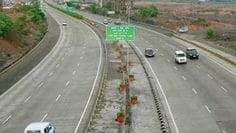In a decisive move towards ensuring the integrity of India’s national highways, the Supreme Court has expressed profound concern over the apparent lack of action by the National Highways Authority of India (NHAI) in removing unauthorised encroachments.

The apex court, in response to a Public Interest Litigation (PIL) seeking the implementation of a grievance redressal mechanism, has directed the NHAI to formulate a comprehensive scheme. The court mandates three critical components in the scheme: regular inspections of highways, the establishment of an efficient grievance redressal mechanism, and swift action based on reported complaints of unauthorised occupations or encroachments. This directive comes in light of the court’s dissatisfaction with the NHAI’s failure to implement the Control of National Highways (Land and Traffic) Act, 2002.
Highlighting the inadequacies, the court emphasised the need for a systematic survey mechanism to identify unauthorised structures or occupations on highway land. Currently, no such machinery exists under the NHAI Act, leading the court to assert that the available measures seem to exist only on paper. Furthermore, the Supreme Court expressed dismay at the non-implementation of a grievance redressal mechanism for citizens to report issues such as congestion or unauthorised occupation of highway land. The absence of an effective mechanism prevents citizens from lodging complaints with the Highway Administration, warranting the urgent development and widespread awareness of such a system.
To ensure the continuous monitoring of highways, the court stressed the necessity of periodic surveys within the jurisdiction of Highway Administrations. Additionally, it directed the Highway Administrations to exercise powers under Section 26 of the NHAI Act for the prompt removal of unauthorised occupations, granting a two-month window for compliance. The Supreme Court emphasised that the role of the Government of India doesn’t conclude with appointing various Highway Administrations. It is imperative for the Government to ensure the effective functioning of these administrations, holding them accountable for fulfilling their duties under the 2002 Act. As India looks to uphold the sanctity of its national highways, this directive from the Supreme Court underscores the urgency for NHAI to translate its commitments from paper into actionable results, signalling a pivotal moment in ensuring the efficiency and transparency of the country’s highway management system.


